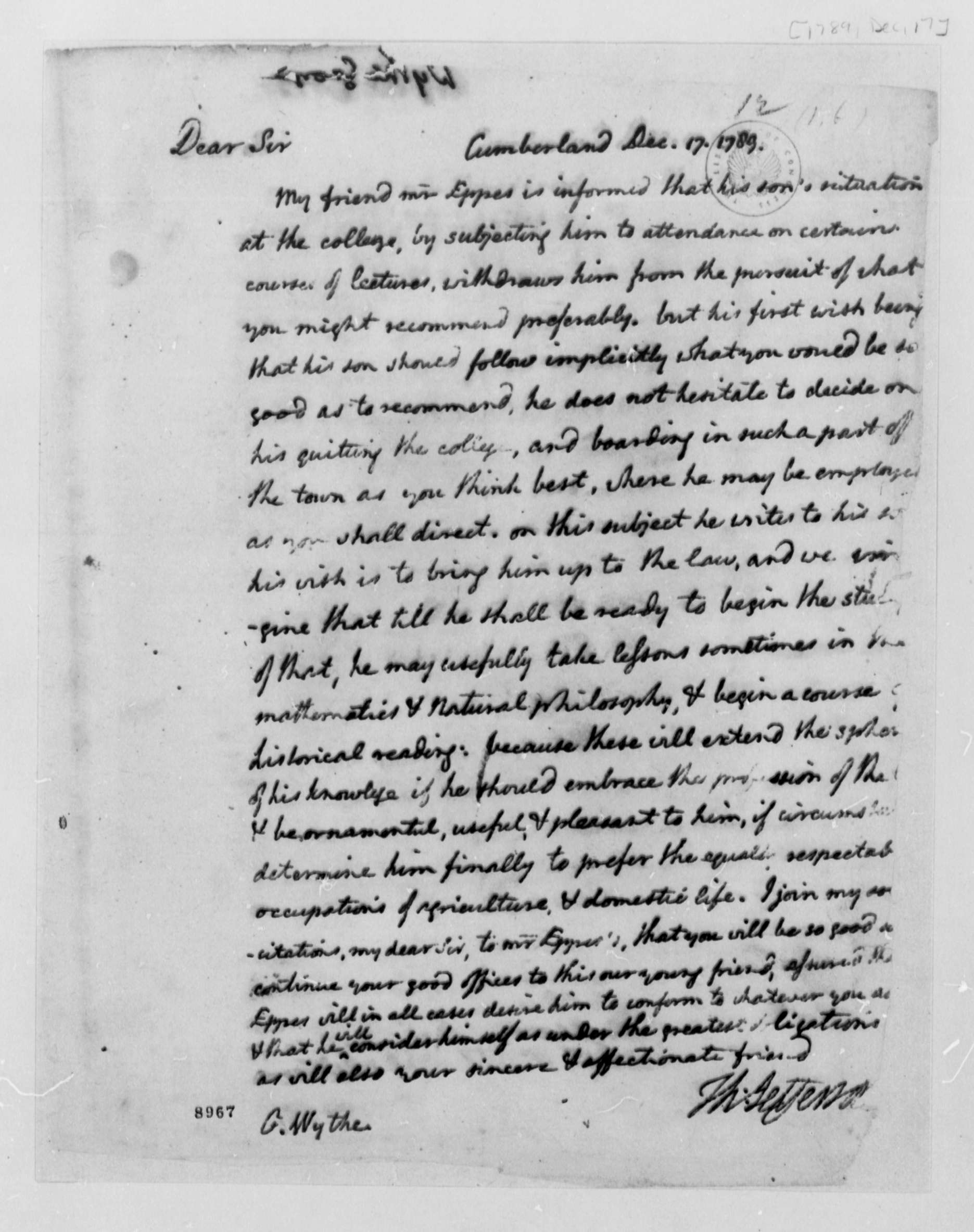Thomas Jefferson to Wythe, 17 December 1789
John Wayles Eppes is Thomas Jefferson's nephew and eventual apprentice of Wythe. Jefferson writes on Eppes' father's behalf to Wythe regarding what should be done about Eppes' education. Jefferson says that Eppes' father has been told that having Eppes attend certain lectures will keep him from pursuing what Wythe recommends. Eppes is willing to quit studying at William and Mary if Wythe thinks it would be the best course of action. Jefferson and Eppes' father think that having Eppes take courses in mathematics, natural philosophy, and historical reading will make him well-rounded when practicing law.

"Thomas Jefferson to Wythe, 17 December 1789." Image from the Library of Congress, The Thomas Jefferson Papers.
Letter text
Cumberland Dec. 17. 1789
Dear Sir
My friend mr Eppes is informed that his son’s situation at the college, by subjecting him to attendance on certain courses of lectures, withdraws him from the pursuit of what you might recommend preferably. but his first wish being that his son should follow implicitly what you would be so good as to recommend, he does not hesitate to decide on his quitting the college, and boarding in such a part of the town as you think best, where he may be employed as you shall direct. on this subject he writes to his son his wish is to bring him up to the law, and we imagine that till he shall be ready to begin the study of that, he may usefully take lessons sometimes in the mathematics & natural philosophy, & begin a course of historical reading: because these will extend the sphere of his knowledge if he should embrace the profession of the [law] & be ornamental, useful, & pleasant to him, if circumstances determine him finally to prefer the equally respected occupations of agriculture, & domestic life. I join my solicitations, my dear Sir, to mr Eppe’s, that you will be so good as continue your good offices to this our young friend, assumed that [mr] Eppes will in all cases desire him to conform to whatever you [desire] & that he will consider himself as under the greatest of obligations as will also your sincere & affectionate friend.